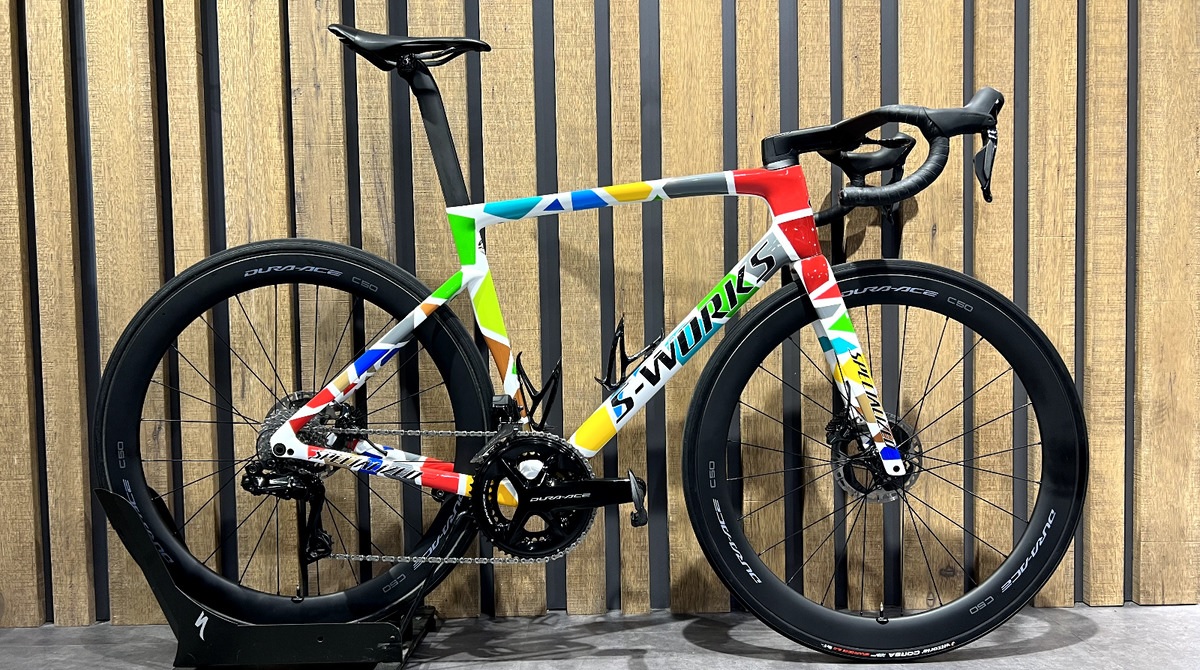
The Best Supplements for Optimizing Climbing Performance in Road Cycling
announcements offers promotions racing bike mtb gravel ebike JUNE 2025 prices best discounts
GranFondo GF ROAD Calendar JUNE 2025 complete list of dates
GranFondo MTB Calendar JUNE 2025 complete list of dates
Nutrition for Cyclists: The Correct Diet to Follow in JUNE 2025
E-Bike Maintenance JUNE 2025 - EVERYTHING YOU NEED TO KNOW TIPS AND SECRETS
MTB Mountain Bike Maintenance JUNE 2025 - EVERYTHING YOU NEED TO KNOW TIPS AND SECRETS
Road Bike Maintenance JUNE 2025 - EVERYTHING YOU NEED TO KNOW TIPS AND SECRETS
How to Train with MTB Mountain Bike in JUNE 2025: Complete Training Schedule and Plan
How to Train with Rollers and Racing Bike in JUNE 2025: Complete Training Schedule and Plan
How to Train with a Road Bike in JUNE 2025: Complete Training Schedule and Plan
The Best Supplements for Optimizing Climbing Performance in Road Cycling
Climbing, a fundamental element of road cycling, presents a significant physical and mental challenge. For cyclists of all levels, using supplements can support performance improvement, fatigue reduction, and muscle recovery. This article, with an informative and unbiased approach, explores the main supplements that can contribute to optimizing climbing performance in road cycling, based on available scientific evidence.
Premise: The Importance of a Balanced Diet
It is crucial to emphasize that supplementation does not replace a healthy and balanced diet. Before considering the use of any supplement, it is essential to ensure you are following an adequate dietary regimen, rich in complex carbohydrates, high-quality protein, and healthy fats. Hydration also plays a crucial role; therefore, the intake of water and, in the case of prolonged efforts, electrolyte solutions, is essential.
1. Carbohydrates: The Fuel for Climbing
Carbohydrates are the primary source of energy for muscles during physical exercise, especially when climbing, where the intensity of the effort is high. Supplementation with carbohydrates can support the availability of glucose in the blood and muscles, delaying the onset of fatigue.
Supplements:
Energy gels: Provide a rapid and concentrated source of carbohydrates, ideal for consumption during climbs, particularly near challenging sections.
Energy bars: Offer a more gradual release of energy compared to gels, useful for sustaining effort for longer periods.
Sports drinks: Contain carbohydrates and, often, electrolytes, to promote hydration and rehydration during physical activity.
Maltodextrin: Glucose polymers that are rapidly absorbed by the body, providing energy.
Considerations: The choice of carbohydrate type and the amount to be consumed depend on the intensity and duration of the climb, as well as individual preferences. It is advisable to experiment during training to find the most effective combination.
2. Beta-Alanine: Buffering Lactic Acid
Beta-alanine is a non-essential amino acid that, once ingested, combines with histidine to form carnosine, a potent buffer that helps reduce the accumulation of lactic acid in the muscles. Lactic acid is one of the main contributors to the burning sensation and muscle fatigue during intense exercise.
Potential benefits: Increased high-intensity exercise capacity, delayed onset of muscle fatigue, improved climbing performance. Dosage: Generally, fractionated daily doses of beta-alanine are recommended for a period of several weeks to achieve significant benefits. Side effects: In some individuals, beta-alanine can cause a slight tingling sensation on the skin (paresthesia), which tends to disappear with continued use.
3. Caffeine: Stimulating Performance
Caffeine is a central nervous system stimulant that can improve athletic performance in several ways, including:
Increased alertness and concentration.
Reduced perception of fatigue.
Improved muscle strength and power.
Increased fat utilization as an energy source.
Method of intake: Caffeine can be taken through supplements (capsules, tablets, gels) or through beverages such as coffee and tea.
Dosage: The effective amount of caffeine varies from individual to individual. It is advisable to start with low doses and gradually increase to assess tolerance and effectiveness.
Side effects: Excessive caffeine consumption can cause anxiety, insomnia, palpitations, and gastrointestinal disorders.
4. Creatine: Supporting Strength and Power
Creatine is a compound naturally present in muscles that plays a fundamental role in energy production during short, intense exercises, such as sprints during a climb.
Potential benefits: Increased muscle strength and power, improved sprint capacity, delayed muscle fatigue. Method of intake: Creatine monohydrate is the most studied and used form. It can be taken with a loading phase (high doses for a limited period) followed by a maintenance phase, or directly with a constant daily dose. Side effects: In rare cases, creatine can cause water retention and gastrointestinal disorders.
5. Nitrates: Improving Oxygen Efficiency
Nitrates, found in foods like beets and spinach, can increase the availability of nitric oxide in the blood, which in turn promotes vasodilation (widening of blood vessels). This can improve blood flow to the muscles, increasing the supply of oxygen and nutrients, and reducing the energetic cost of exercise.
Supplements: Concentrated beetroot juice or nitrate-based supplements. Potential benefits: Improved endurance, increased aerobic power, reduced perception of fatigue. Considerations: The effectiveness of nitrates can vary between different individuals. It is advisable to experiment with intake for a certain period to assess the benefits.
6. Electrolytes: Replenishing Minerals Lost Through Sweat
During physical exercise, especially in hot conditions, electrolytes (sodium, potassium, magnesium, chlorine) are lost through sweat. The loss of electrolytes can cause muscle cramps, fatigue, and decreased performance.
Supplements: Sports drinks, effervescent tablets, or electrolyte capsules. Benefits: Prevention of dehydration and muscle cramps, maintenance of hydro-electrolyte balance. Considerations: Electrolyte supplementation is particularly important during long climbs and in hot and humid weather conditions.
Conclusions:
The use of supplements can be a valuable support for improving climbing performance in road cycling. However, it is essential to adopt a conscious and personalized approach. Before starting to take any supplement, it is advisable to consult a doctor or a sports nutrition professional to assess your individual needs and identify the most suitable supplementation strategy. Furthermore, supplementation should always be integrated into a context of healthy eating, adequate training, and sufficient rest.
If you have other curiosities you can write to: salvatelliluca @ hotmail.com
